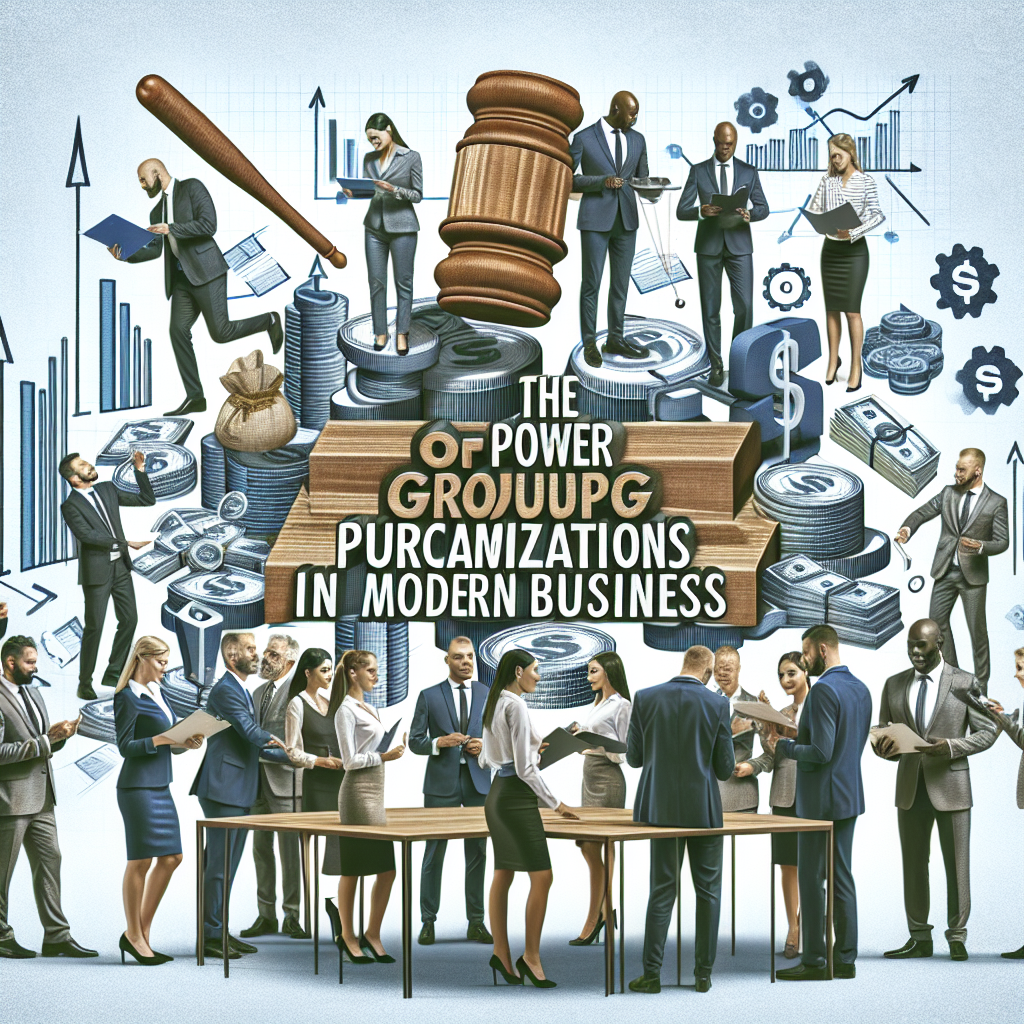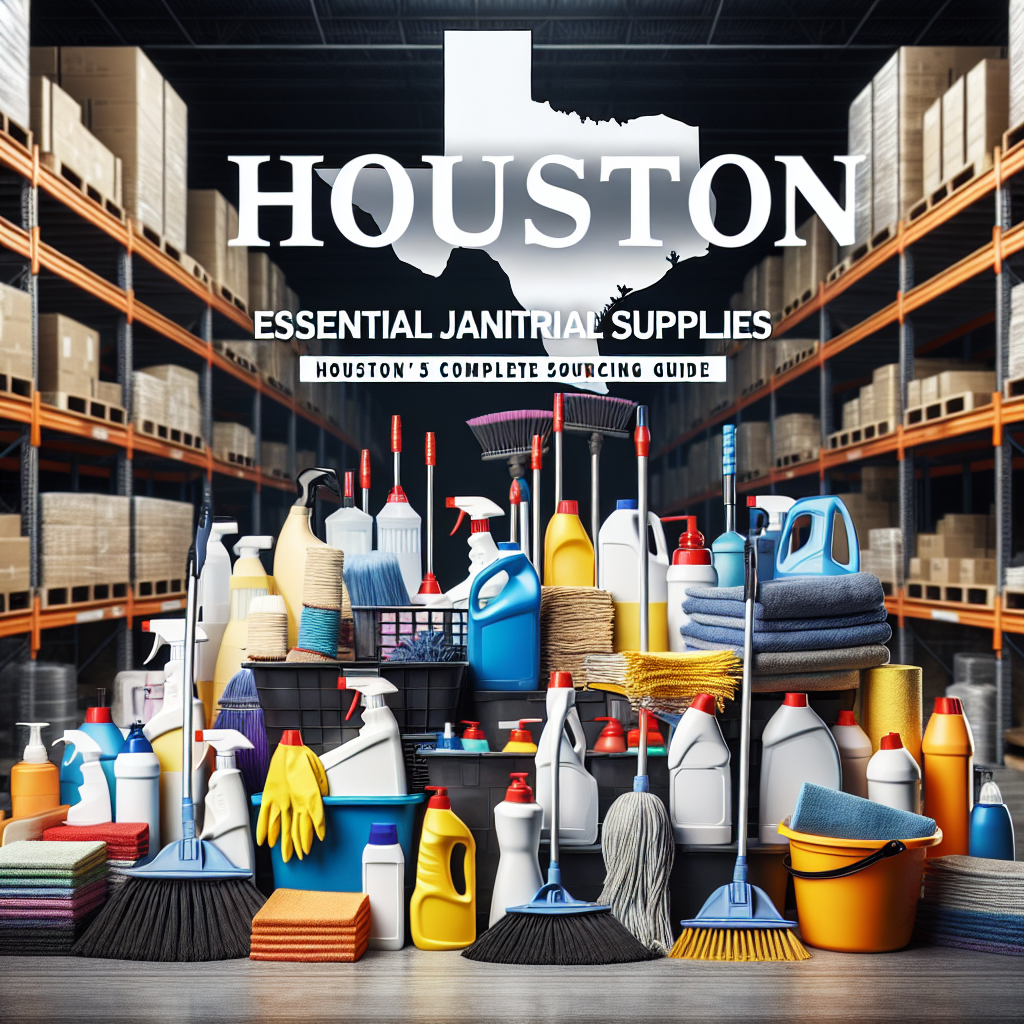Introduction
When it comes to optimizing procurement strategies, understanding the differences between Purchasing Groups and Group Purchasing Organizations (GPOs) is crucial. Both models leverage collective buying power but differ in their structures and benefits.
Purchasing Groups consist of businesses joining forces to pool their purchasing needs, enabling them to negotiate better deals with suppliers. Think of it as a neighborhood coming together to buy bulk groceries.
On the other hand, GPOs are organizations that negotiate contracts with suppliers on behalf of their members. Members can then purchase from these contracts, often at significantly reduced prices due to the large volume of combined demand.
Grasping these differences can lead to:
- Enhanced supply chain efficiency
- Significant cost reductions
- Improved supplier relationships
In this article, you’ll dive into the benefits and drawbacks of each approach. You’ll also gain practical tips for choosing the right option for your business needs. For instance, if you’re managing a one-person procurement function, you might find our strategic solutions for cost efficiency and supplier management helpful.
For more insights on supply chain visibility, which is critical in both purchasing groups and GPOs, check out this resource.
If you’re curious about how GPOs differ from purchasing cooperatives, explore this comparison. This could provide valuable insights into optimizing your procurement strategy whether you decide to go direct or through a GPO. Additionally, if you’re looking for specific office supply procurement tips, we have resources tailored just for that.
Understanding these models can significantly contribute to your overall business success.
Understanding Purchasing Groups
Purchasing groups, often seen as informal organizations, bring together multiple businesses with shared procurement needs to leverage collective buying power. These groups are built on the principle that there’s strength in numbers, and by pooling their resources, members can negotiate better deals and secure bulk discounts.
Definition and Characteristics of Purchasing Groups
A purchasing group typically consists of several member companies that collaborate to purchase goods and services more efficiently. These groups are often industry-specific or region-based, allowing members to benefit from shared knowledge and best practices. Key characteristics include:
- Voluntary Membership: Businesses join purchasing groups voluntarily, seeking mutual benefits.
- Shared Resources: Members share resources, including market intelligence and supplier contacts.
- Collective Negotiation: The group negotiates contracts as a single entity, increasing its bargaining power.
These purchasing groups can often be classified as Group Purchasing Organizations (GPOs), which further streamline the procurement process for their members.
Benefits of Joining a Purchasing Group
The advantages of being part of a purchasing group are numerous. Here are some key benefits:
- Increased Negotiation Power:
- By joining forces, members can negotiate better terms with suppliers than they could individually.
- This collective strength often translates into more favorable pricing and contract conditions.
- Cost Savings Through Collective Buying:
- Pooling purchases leads to significant cost reductions through bulk buying.
- Members save money by accessing lower prices for high-volume orders.
- Shared Resources and Expertise:
- Access to shared resources such as procurement technology and expertise.
- Members benefit from each other’s experiences and strategies, enhancing overall procurement efficiency.
- Enhanced Supplier Relationships:
- Stronger relationships with suppliers due to consistent, high-volume orders from the group.
- Suppliers are often more willing to offer special terms to groups with reliable purchasing patterns.
Understanding these dynamics is crucial for businesses looking to optimize their procurement strategies through collaboration.
Exploring Group Purchasing Organizations (GPOs)
Definition and Structure of GPOs
Group Purchasing Organizations, or GPOs, are formal entities that aggregate the purchasing power of multiple businesses to obtain better pricing and terms from suppliers. Unlike informal purchasing groups, GPOs often operate with a structured framework, offering standardized services and processes. These organizations function by pooling the collective buying needs of their members, allowing them to leverage bulk purchasing strategies effectively.
Services Provided by GPOs
Joining a GPO can provide numerous advantages, especially in terms of vendor selection and contract negotiation. Members gain access to:
- Pre-negotiated contracts with suppliers: These agreements are crafted by the GPO’s experts, ensuring that members receive competitive pricing and favorable terms.
- Bulk purchasing expertise: The professionals within a GPO bring extensive knowledge in managing large-scale procurement efforts. This can translate to significant cost savings for member organizations.
- Streamlined vendor relationships: By centralizing vendor interactions through the GPO, businesses can simplify their procurement processes and focus on core activities.
For example, Hubzone Depot harnesses its membership in a GPO to secure exclusive deals and optimize supply chain efficiency. This strategic alignment allows them to offer best-in-class pricing and immediate cost reductions for their clients. To explore more about the pre-negotiated agreements offered by Hubzone Depot, visit their website.
Expertise in Bulk Purchasing Strategies
A key benefit of participating in a GPO is the ability to capitalize on bulk purchasing strategies. These include:
- Volume discounts: Suppliers are often willing to offer lower prices when orders are placed in large quantities.
- Reduced administrative costs: Managing fewer but larger transactions can minimize overhead expenses for member organizations.
- Enhanced supply chain management: With expert guidance from the GPO, businesses can achieve more efficient inventory control and logistics planning.
To dive deeper into the evolution and history of GPOs, you might find this resource insightful: The Evolution and History of Group Purchasing Organizations.
By leveraging these services, businesses can not only save money but also streamline their operations, making GPOs an attractive option for many. For those looking into effective cost-reduction strategies, exploring how Hubzone Depot implements these techniques could provide valuable insights. Check out their approach here: Cost Reduction Strategies.
Key Differences Between Purchasing Groups and GPOs
When deciding between purchasing groups and Group Purchasing Organizations (GPOs), understanding their distinct characteristics can make all the difference. Let’s break down their organizational structures, membership requirements, and operational models:
Organizational Structures
- Purchasing Groups: Typically feature informal structures where small businesses or organizations collaborate on a voluntary basis. These groups often form through personal or professional networks.
- GPOs: Operate under more formal structures, often as legally incorporated entities. They have dedicated staff and resources to manage contracts and relationships with suppliers.
Membership Requirements
- Purchasing Groups: Membership criteria can be quite flexible. Businesses might simply need to express interest and agree to participate in collective buying efforts.
- GPOs: Generally have more stringent membership requirements. Potential members may need to meet specific qualifications, such as industry type or purchasing volume.
Operational Models
- Purchasing Groups: Function through collaborative decision-making among members. Each member can contribute to negotiations, ensuring that the needs of all participants are considered.
- GPOs: Follow a centralized decision-making process. The organization manages negotiations on behalf of its members, leveraging its expertise in bulk purchasing strategies.
Costs Associated with Joining
- Purchasing Groups: Often have minimal or no direct costs for joining since they rely on the collective effort of members. Funding usually comes from shared savings or contributions from participating businesses.
- GPOs: Membership fees can vary widely. Some GPOs charge administrative fees, while others might offer free membership options funded by supplier rebates.
Navigating these differences requires careful consideration of your business’s specific needs. For instance, a company looking for immediate cost reductions without upfront fees might lean towards a purchasing group. On the other hand, businesses seeking structured support and access to pre-negotiated contracts may find a GPO more advantageous.
Choosing the right model involves evaluating not just the costs but also the strategic advantages each option offers.
Selecting the Right Option for Your Business
When determining whether a purchasing group or a Group Purchasing Organization (GPO) is the right fit, several factors come into play. Here’s what you should consider:
Evaluation Criteria
- Procurement Needs
- Assess your organization’s specific procurement requirements. If you frequently purchase a broad range of products, a GPO might offer more extensive pre-negotiated contracts to suit your needs.
- For specialized or niche products, a purchasing group that focuses on specific industries could provide better value.
- Supplier Relationships
- Think about your current supplier relationships. A purchasing group often fosters tighter-knit communities with suppliers, while a GPO can leverage its larger network for broader access.
- Consider whether your business prioritizes long-term supplier relationships or values competitive pricing from multiple suppliers.
- Cost Structure
- Evaluate the cost implications. GPOs may have administrative fees but can offer significant cost savings through bulk purchasing. Some GPOs are funded by suppliers and might offer free membership.
- Purchasing groups may require membership fees but could provide cost-sharing among members to reduce expenses.
- Operational Model
- Understand each model’s operational structure. GPOs typically offer more robust support services and technology solutions for procurement processes.
- Purchasing groups might be more collaborative and flexible, allowing you to have a greater say in negotiations and contract terms.
Case Study: Hubzone Depot’s Use of GPOs
Background on Hubzone Depot
Hubzone Depot LLC is a certified HUBZone small business and Women’s Business Enterprise (WBE), founded by Jessica S. Presco in Burlington, NJ. Specializing in supplies and services for public sector clients, Hubzone Depot emphasizes cost savings and strategic partnerships through their involvement in GPOs.
Benefits of Using GPOs
- Strategic Partnerships
- Hubzone Depot collaborates with vendors via Group Purchasing Organizations, leveraging collective buying power to secure competitive rates for high-quality products.
- This collaboration supports their mission of delivering best-in-class service integrity with transparent reporting and ongoing account management.
- Cost Savings
- By being part of a GPO, Hubzone Depot has achieved notable cost reductions, boasting a 96% savings rate over 15 years.
- The absence of long-term contracts and purchase minimums allows flexible ordering without constraints, making it easier to adapt to client needs.
- Success Stories
- Through strategic partnerships facilitated by their GPOs, Hubzone Depot has saved millions for US organizations.
- These partnerships enable access to exclusive discounts and personalized support, ensuring seamless implementation with minimal disruption to operations.
For businesses considering their options, learning from examples like Hubzone Depot can illuminate the tangible benefits of joining a GPO. To dive deeper into how GPOs can optimize supply chains, check out this insightful article.
Evaluating these criteria against your business needs will guide you towards the most effective procurement strategy, whether it’s joining a purchasing group or partnering with a GPO.
Explore additional tips on procurement optimization to streamline your purchasing processes further.
For insights into avoiding common workplace purchasing errors, visit this resource
Conclusion
Assessing your business needs is crucial when choosing between purchasing groups and GPOs. Understanding how each model aligns with your procurement strategies can make a significant impact on cost savings and operational efficiency.
Maximizing savings through effective supplier negotiations is another key aspect. Leveraging the collective buying power and pre-negotiated contracts offered by these models, such as those outlined in our Complete Guide to Group Purchasing, can lead to substantial financial benefits.
Who We Are
Hubzone Depot LLC is a certified HUBZone small business and Women’s Business Enterprise (WBE). Based in Burlington, NJ, we specialize in providing supplies and services to public sector clients using public funds.
What We Do
Our mission centers around delivering best-in-class service integrity through transparent reporting, strategic solutions for expense optimization, and seamless implementation. With a 96% savings rate over 15 years, we ensure no purchase minimums and access to competitive pricing.
Resources
For more insights into optimizing procurement strategies, explore our Tail Spend Analytics Archives which offer valuable resources to enhance your procurement process.
Let’s Connect
Stay updated with our latest tips and best practices on small business procurement. Reach out to us for personalized support and streamlined purchasing solutions.





